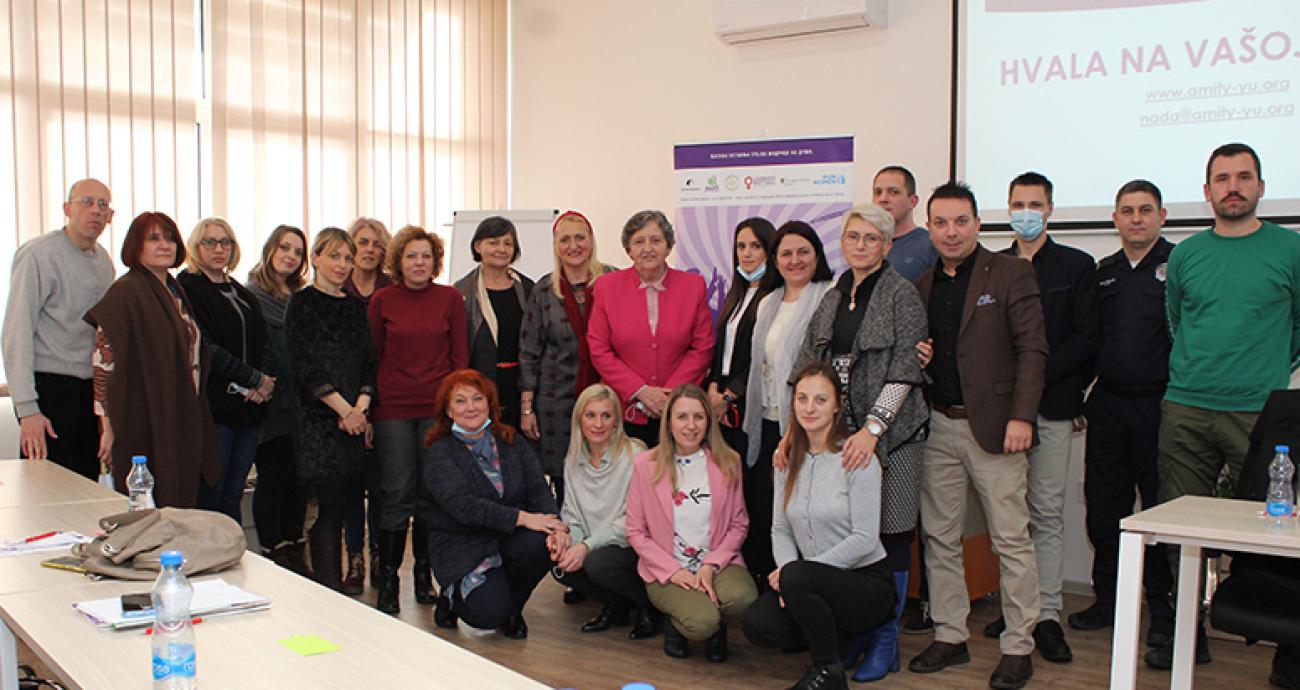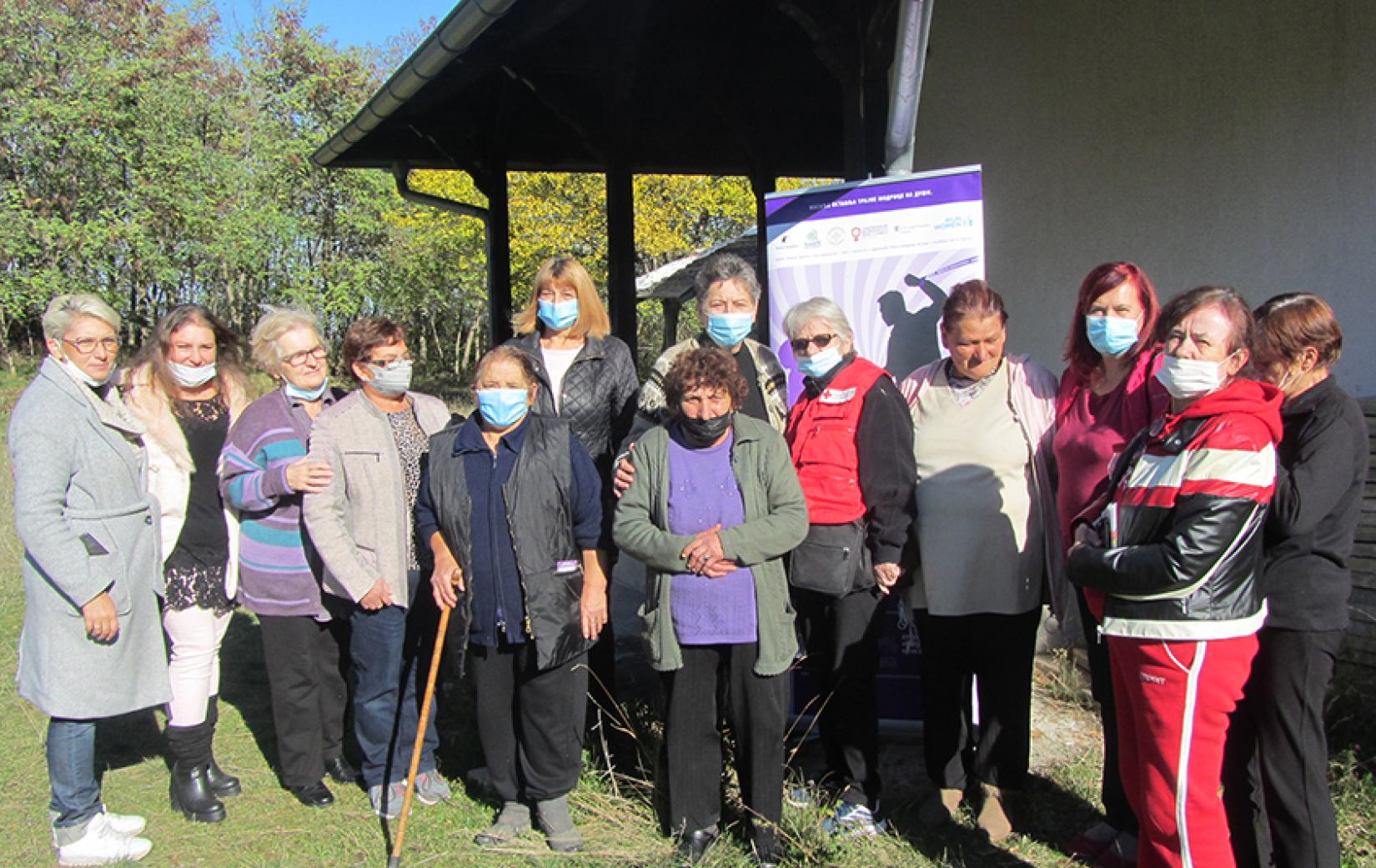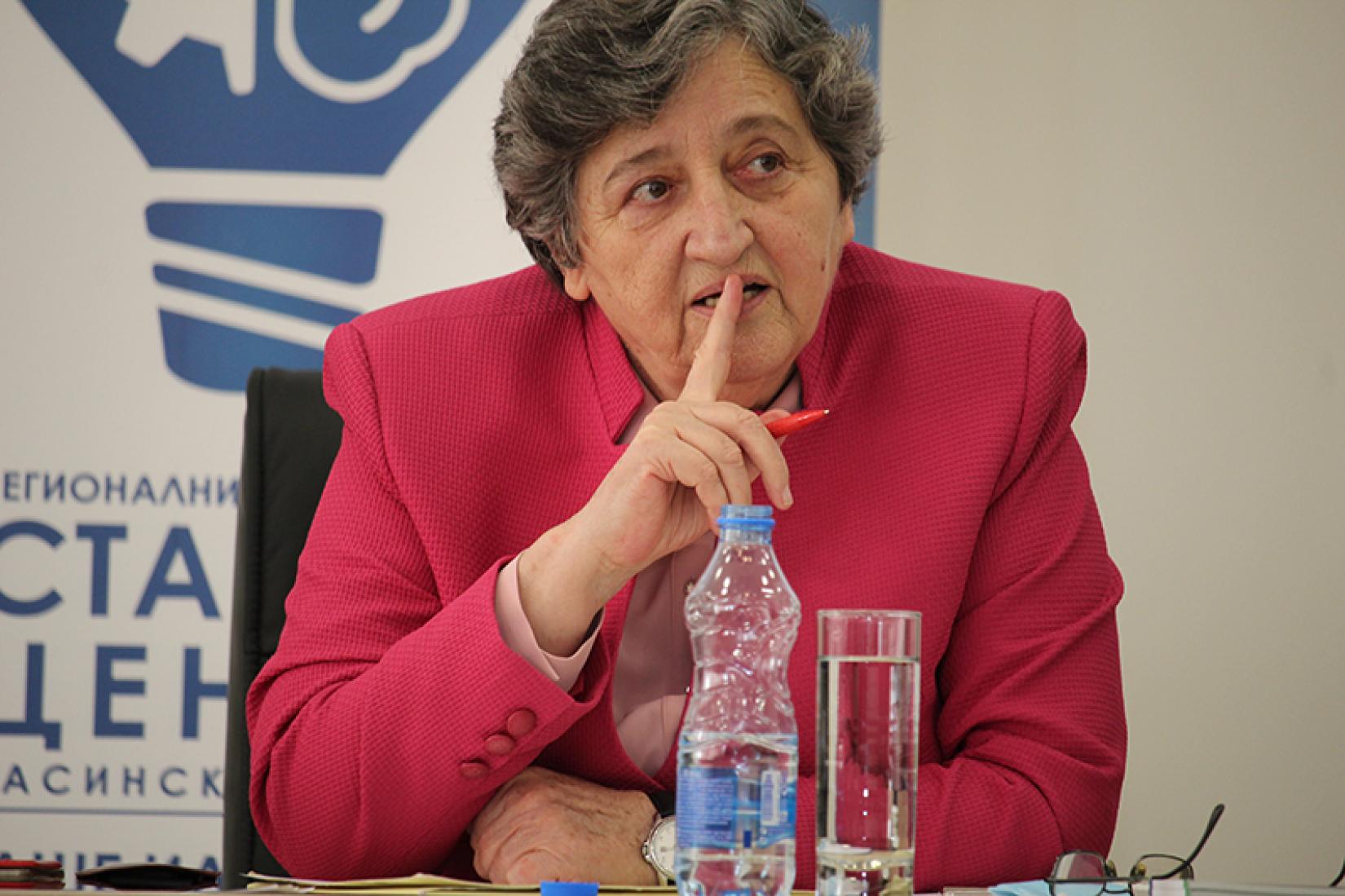Bringing domestic violence against elderly women in Serbia to light

Over 200 elderly men and women from rural areas in Serbia, educated and informed about gender-based violence.
From May 2021 to May 2022, 177 elderly women and 41 elderly men from almost 50 rural areas of southern Serbia, were informed, motivated and encouraged to recognize gender-based violence and discrimination and to report it. Through information sessions and training on gender-based violence, participants were introduced to the specifics and types of violence, as well as available protection measures. The training sessions were organized through a UN Women project implemented by the civil society organization Amity and funded by the Norwegian Embassy in Belgrade.
According to research by the Serbian Red Cross, 16 percent of elderly women between the ages of 65 and 74 experienced some form of violence after reaching the age of 65. For many of them, this is a continuation of the violence they have suffered throughout their lives. According to the same research, 40 percent of senior aged women have experienced some form of violence perpetrated by a current or former partner, since the age of 15. To help prevent and reduce violence against elderly women, Amity, in partnership with the Women's Initiative from Trstenik and the association, Zlatibor Circle, from Čajetina, trained elderly women and men from 49 rural areas across Trstenik, Čajetina and Aleksandrovac municipalities. Through a total of ten sessions, participants learned about the types of violence and discrimination against elderly women.
“Violence against elderly women is widespread and largely hidden. Gender aspects of aging indicate that older women are more at risk of violence than older men. Many older women have suffered domestic violence from their spouses, partners or other family members for years, but they have kept silent about it, because they consider it an acceptable model of behaviour,” says Nadežda Satarić, president of Amity. “Some elderly women do not report violence because of fear, shame, not knowing to whom and how to turn, or out of the belief that no one will believe them. That is why domestic violence against elderly women is the best kept family secret”.
Leposava Ognjanović, 73, from Gornji Dubič village in Trstenik municipality was one of the training participants. She explains that this kind of training was very rarely organized in her village. For her this was not only opportunity to learn more about gender-based violence but also to get together with other women, to socialize.

“In my village, we are all old people, hardly anyone visits us, so initially I came because I was lonely. Once, when I was younger, I was slapped, but back then I did not consider it violence. There was a lot of work in the household, and it was all on my shoulders. And who should I complain to? So, I remained silent and suffered,” Ognjanović says. “Now, I’ve learned a lot, so I can teach younger people and tell them to speak up, that they should not put up with that, that every mean look is also a form of violence.”
Besides the training sessions, volunteers from Trstenik and Čajetina, who provide home care services to the elderly, also participated in workshops. They gained skills in recognizing violence and discrimination against older women and were empowered to report it. Through two more training sessions, in the cities of Užice and Kruševac. Here, 47 professionals from women’s civil society organizations and public institutions from Zlatibor and Rasina districts, who work with the elderly, also gained skills in recognizing specific forms of violence, as well as discrimination against elderly women and how to respond.

Nadežda Satarić says that gender-based violence against elderly people is still a topic no one deals with systematically, while support services generally discriminate against the elderly. “We are very proud because we managed to get into direct contact with elderly women from rural areas, some of them being very remote, but for the first time we have also spoken with elderly men. All of them are trained to recognize the problem and have spoken about it,” says Satarić.
Radunka Milosavljević, 65, from village of Velika Drenova, in Trstenik municipality participated in the training. She says that violence against women in the village is seen more as a usual pattern of behaviour rather than something that is unacceptable.
“Women remain silent, and put up with their husbands, fathers-in-law and mothers-in-law, and finally their children. In my village, it is considered violence when a woman is severely physically abused or beaten. On the other hand, slaps, insults and cursing is somehow tolerated. These workshops helped me learn what my rights are, what is considered violence, to whom to report and from whom I can ask for help,” she adds.
Nadežda Satarić says that the added value of this project is the rich information collected from the field. This provides insights into the position and problems of elderly women as well as those who live in rural areas more generally. It also gave an opportunity for elderly people to gather and to discuss their concerns.
Written by Jovana Zdjelarević

